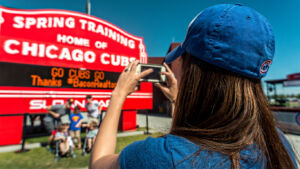We know not to judge books by their covers, but at some point, every moviegoer learns not to judge movies by their trailers. I learned my lesson when I saw “Paddington”. The trailers for the film exuded immaturity, so I bought a ticket with the intent to deride. Much to my surprise, the first movie starring the famous bear was an enchantment: mature, dotingly shot, and bleeding with heart. My excitement for the sequel was the furthest thing from ironic.
Three years later, fiction’s most British animal is back on the big screen. Children always need to be distracted by a new movie; adults are dying for the smallest dose of optimism. With expectations set at a more generous level, does “Paddington 2” have the power to make the world a better place?

That’s what Paddington Bear has been up to since the ending of the first film. Having settled down in London’s Windsor Gardens with his adoptive family The Browns, Paddington spends his days adjusting to English sensibilities and cheering up the community through small favors and pleasantries. With the exception of a bigoted neighbor, the neighborhood cheerfully accepts the anthropomorphic bear—a satisfying extension of the first movie’s pro-immigrant undertone.
Paddington misses his Aunt Lucy, who always wanted to see London but remains in Peru at the Home for Retired Bears. After discovering a pop-up book of the world’s greatest city, Paddington decides to buy it and send it to Aunt Lucy for her birthday, but must first get a job to afford the gift. These plans are thrown into disarray when Phoenix Buchanan, a washed-out theater actor (Hugh Grant, hilariously hamming it up), steals the book and frames Paddington for the crime.
The subsequent adventure significantly widens the small scope of the original, but “Paddington 2” never stops finding ways to retain intimacy. Even amongst prison escapades and speeding trains and increasingly magical uses for marmalade, the film thrusts its focus on personal connections to the forefront.
The original emphasized the importance of welcoming all people (species) regardless of physical appearance or country of origin; “Paddington 2” extends that empathy in everyone’s direction via the bear making the most of people accepting him. “If we are kind and polite, the world will be right” isn’t just dialogue—it’s the movie’s mission statement. The practice of that interminable British politeness as a route to kindness is endlessly delightful and valuable for all ages.
Innocent pleasures abound beyond the message. The cinematography is reminiscent of early Wes Anderson—precious without being showy about it. The color grading and set design are full of little lovely touches, coming together into a charming world that’s perfect for the integration of a carefully animated bear. The film also functions as an ode to the ethnic inclusivity and warmth of London: a cast of diverse Brits gives touching bit performances all around; affection for the city is tangible.
A couple moments are directed squarely at small children and there’s little real sense of danger, but “Paddington 2” corrects the latter by setting up resolutions that are triumphant in their overtness. It’s a movie that’s meant for everyone in that it wants the best for everyone. In turbulent times, how could you not want to watch that? Bring on “Paddington 3”.
★★★★½ (4.5 out of 5)



